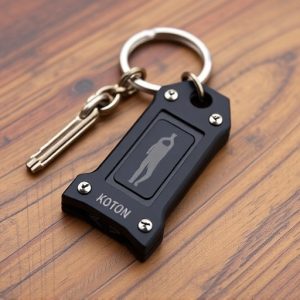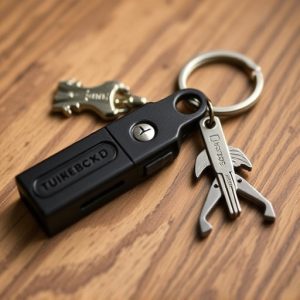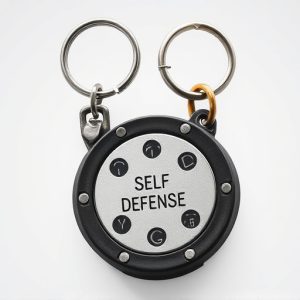Rust-Proof Self-Defense Keychain: Legal Requirements & Safety Standards
Legal standards for keychain self-defense tools like Rust Proof Keychains focus on personal safety a…….
Legal standards for keychain self-defense tools like Rust Proof Keychains focus on personal safety and consumer protection, mandating specific criteria for materials (durability and safety), functionality (effective yet safe defense), and labeling (clear instructions). Choosing products with rust-proof materials such as stainless steel or specialized alloys ensures longevity, effectiveness, and reliability in various conditions. Adhering to industry safety standards guarantees accessibility and dependability in stressful situations, enhancing the device's trustworthiness for personal protection.
Staying safe on the go is a priority, and keychain safety devices offer a convenient solution. If you’re considering carrying self-defense tools, understanding the legal landscape is crucial. This guide navigates the essential legal requirements for keychain safety devices, focusing on ensuring your choice of Rust-Proof Self-Defense Materials complies with all relevant standards. By following these steps, you can legally and confidently carry a powerful personal defense tool in today’s world.
- Understanding Legal Requirements for Keychain Safety Devices
- Choosing Rust-Proof Self-Defense Materials That Comply
- Ensuring Your Device Meets All Essential Safety Standards
Understanding Legal Requirements for Keychain Safety Devices
In many jurisdictions, the legal requirements for keychain safety devices are designed to ensure both personal security and compliance with consumer protection laws. When considering a Rust Proof Self Defense Keychain, it’s crucial to understand that these devices must meet specific standards related to functionality, durability, and materials used. The primary focus is on their effectiveness as self-defense tools, which means they should be designed to cause reasonable force for personal protection without causing unnecessary harm or injury.
Key legal considerations include the type of rust-resistant materials used in construction, ensuring these materials are safe for human contact, and meeting safety standards set by relevant regulatory bodies. Additionally, labeling and packaging must clearly indicate the device’s intended use, potential risks, and any necessary precautions. Adhering to these legal requirements ensures that keychain safety devices not only provide peace of mind but also protect consumers from potentially harmful or ineffective products.
Choosing Rust-Proof Self-Defense Materials That Comply
When selecting a keychain safety device, it’s paramount to choose products crafted from rust-proof self-defense materials. This decision ensures your device maintains its integrity over time, especially when exposed to varying weather conditions and frequent use. Opting for materials that are resistant to corrosion guarantees the effectiveness of the keychain in emergency situations.
Rust-proof metals such as stainless steel or specialized alloys are ideal choices. These materials not only withstand rust formation but also offer enhanced durability. Such keychains can effectively deter potential attackers, providing a sense of security while ensuring your device remains reliable for self-defense purposes.
Ensuring Your Device Meets All Essential Safety Standards
When developing or selecting a keychain safety device, it’s paramount to ensure it meets all essential safety standards, especially those related to materials used for self-defense. Opting for rust-proof components is crucial; corrosion can compromise both the device’s effectiveness and longevity. Rust-resistant materials like stainless steel or high-quality aluminum alloys are recommended for keychains designed to ward off potential threats.
Moreover, the safety standards should cover ease of use and reliability in stressful situations. Self-defense tools must be readily accessible and dependable, ensuring users can defend themselves effectively when needed. Compliance with relevant industry regulations guarantees that your device has undergone rigorous testing to meet safety benchmarks, enhancing its reliability as a personal protection tool.


